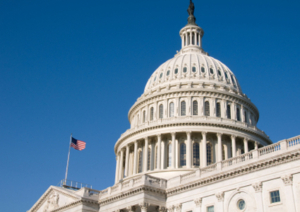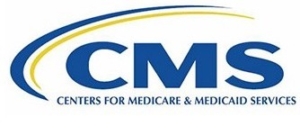SNAP Asks Feds to Withdraw Medicaid Financing Regulation
CMS should withdraw its proposed Medicaid fiscal accountability regulation, SNAP has suggested in a formal comment letter to the federal agency in response to a new regulation it proposed in November.
 According to the comment letter SNAP submitted to the Centers for Medicare & Medicaid Services,
According to the comment letter SNAP submitted to the Centers for Medicare & Medicaid Services,
SNAP is concerned that this proposed regulation would inappropriately restrict the state’s ability to finance the non-federal share of the Medicaid program, would impose significant additional regulatory burdens – the cost of which would far outstrip their benefit – would inappropriately introduce subjectivity into the application of previously clear and objective regulatory standards, and is beyond the scope of the statutory authority granted to CMS.
Learn more about SNAP’s views on the proposed Medicaid fiscal accountability regulation and why SNAP believes CMS should withdraw it in SNAP’s formal comment letter.
 Last August a new Department of Homeland Security regulation took effect that authorized the federal government to reject immigrants’ applications for visas and green cards if their financial situation and employment prospects suggested that they might become a “public charge” and dependent on government safety-net programs like Medicaid and food stamps. A number of groups sued to prevent the rule’s implementation and federal courts imposed an injunction against its enforcement but now the Supreme Court has lifted the last of these injunctions.
Last August a new Department of Homeland Security regulation took effect that authorized the federal government to reject immigrants’ applications for visas and green cards if their financial situation and employment prospects suggested that they might become a “public charge” and dependent on government safety-net programs like Medicaid and food stamps. A number of groups sued to prevent the rule’s implementation and federal courts imposed an injunction against its enforcement but now the Supreme Court has lifted the last of these injunctions. In late December, PBS broadcast an interview with Centers for Medicare & Medicaid Services administrator Seema Verma. Kaiser Health News has published a transcript of excerpts from that interview during which Verma discusses Medicaid – including enrollment, eligibility, services, and children – Medicare for all, administration attempts to reduce health care costs, protection for people with pre-existing conditions, and more. Read those excerpts in the Kaiser Health News article “
In late December, PBS broadcast an interview with Centers for Medicare & Medicaid Services administrator Seema Verma. Kaiser Health News has published a transcript of excerpts from that interview during which Verma discusses Medicaid – including enrollment, eligibility, services, and children – Medicare for all, administration attempts to reduce health care costs, protection for people with pre-existing conditions, and more. Read those excerpts in the Kaiser Health News article “ Authorization for delaying the cut in allotments to the states, which would have resulted in reduced Medicaid DSH payments for many hospitals – including private safety-net hospitals – would expire on May 22. Congress is expected to address Medicaid DSH, along with surprise medical bills, the price of prescription drugs, and other health care matters, before that time.
Authorization for delaying the cut in allotments to the states, which would have resulted in reduced Medicaid DSH payments for many hospitals – including private safety-net hospitals – would expire on May 22. Congress is expected to address Medicaid DSH, along with surprise medical bills, the price of prescription drugs, and other health care matters, before that time. The Medicaid and CHIP Payment and Access Commission kicked off its December meeting with highlights from its forthcoming issue of MACStats: Medicaid and CHIP Data Book, due out December 18, 2019. MACStats brings together statistics on Medicaid and State Children’s Health Insurance Program (CHIP) enrollment and spending, federal matching rates, eligibility levels, and access to care measures, which come from multiple sources.
The Medicaid and CHIP Payment and Access Commission kicked off its December meeting with highlights from its forthcoming issue of MACStats: Medicaid and CHIP Data Book, due out December 18, 2019. MACStats brings together statistics on Medicaid and State Children’s Health Insurance Program (CHIP) enrollment and spending, federal matching rates, eligibility levels, and access to care measures, which come from multiple sources. The Prescription Drug Pricing Reduction Act includes a provision that would eliminate two years of Affordable Care Act-mandated cuts in the allocation of federal money to the states for Medicaid disproportionate share hospital payments (Medicaid DSH). Those cuts have been delayed several times by Congress but were scheduled to begin in October of 2019 and run through federal FY 2025, only to be delayed again twice by continuing resolutions adopted by Congress to fund the federal government in the absence of enacted appropriations bills.
The Prescription Drug Pricing Reduction Act includes a provision that would eliminate two years of Affordable Care Act-mandated cuts in the allocation of federal money to the states for Medicaid disproportionate share hospital payments (Medicaid DSH). Those cuts have been delayed several times by Congress but were scheduled to begin in October of 2019 and run through federal FY 2025, only to be delayed again twice by continuing resolutions adopted by Congress to fund the federal government in the absence of enacted appropriations bills. The statement, an annual OMB document, organizes the priorities as follows:
The statement, an annual OMB document, organizes the priorities as follows: According to the Centers for Medicare & Medicaid Services, the Medicaid improper payment rate in FY 2019 was 14.9 percent, amounting to $57.36 billion in improper payments. The improper payment rate that year for CHIP services was 15.83 percent, representing $2.74 billion in improper payments. Both are significant increases over FY 2018, when the Medicaid improper payment rate was 9.7 percent, representing $36.25 billion, and the CHIP rate was 8.57 percent, for $1.39 billion.
According to the Centers for Medicare & Medicaid Services, the Medicaid improper payment rate in FY 2019 was 14.9 percent, amounting to $57.36 billion in improper payments. The improper payment rate that year for CHIP services was 15.83 percent, representing $2.74 billion in improper payments. Both are significant increases over FY 2018, when the Medicaid improper payment rate was 9.7 percent, representing $36.25 billion, and the CHIP rate was 8.57 percent, for $1.39 billion.